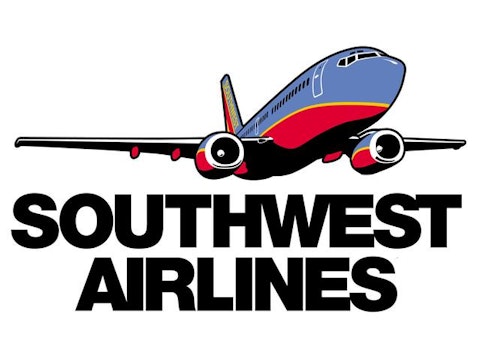The airline industry is known as one of high costs. Whether it’s in purchasing aircraft, leasing aircraft, paying a large workforce, or buying fuel that changes in price on a daily basis, the costs of running an airline are quite high. So it has been no surprise that airlines have not ascended to be dividend kings, dividend aristocrats, or even dividend commoners. However the airline industry today is stronger (partly due to consolidation and disciplined capacity management and partly because only one of the legacy carriers is bankrupt right now) and some of the more healthy carriers are issuing dividends.
The dividend bidding starts at one cent

Six cents!
If this dividend yielding around 1.3 percent came from a company other than an airline, most investors would probably see it as a disappointingly small return of investor capital. But this dividend was what Delta Air Lines, Inc. (NYSE:DAL) declared a few months ago as part of a plan to return $1 billion to shareholders through dividends and share buybacks. Some investors hailed this as a signal of confidence in the airline industry while others questioned the logic in a legacy airline like Delta choosing to use its cash in this way (more on this later).
But dividend-paying Southwest Airlines Co. (NYSE:LUV) was not about to be out-yielded four times by a legacy airline that was bankrupt less than a decade ago. Southwest countered by raising its quarterly dividend to four cents, offering a yield similar to Delta Air Lines, Inc. (NYSE:DAL)’s.
Twenty cents!
Although it did opt to repurchase stock over the years, Alaska Air Group, Inc. (NYSE:ALK), parent company of Alaska Airlines and Horizon Air, announced in a press release on Jul. 11 it will begin paying a twenty cent dividend to all shareholders of record as of Aug. 6. First of all, Alaska Air shares are priced significantly higher than those of Southwest Airlines Co. (NYSE:LUV) and Delta Air Lines, Inc. (NYSE:DAL), meaning this dividend works out to a yield of 1.39% as of the close on the day just prior to the announcement. Alaska Air also noted in the press release that it will continue with a $250 million stock repurchase program, a strategy that fits with previous actions by Alaska Air and the Delta buyback announcement.
A dividend sweet spot?
One thing these airline dividends all have in common is they yield somewhere in the 1.2 to 1.4 percent range. Even the dividend paid by regional operator SkyWest, Inc. (NASDAQ:SKYW) falls within this range. Remember, the airline business is full of high costs, and airlines realize that they need to use cash to not only manage debts but to purchase new equipment and protect against downturns in the economy or upturns in the price of jet fuel. Based on the numbers run by Southwest Airlines Co. (NYSE:LUV), Delta Air Lines, Inc. (NYSE:DAL), Alaska Air Group, Inc. (NYSE:ALK), and SkyWest, this low 1% range seems to be what dividend-paying airlines are comfortable with paying right now.
Financially responsible?
As previously mentioned, some investors are questioning the logic of airlines paying dividends when they still have such high costs to manage in an industry that is cyclical in nature and is vulnerable to jet fuel cost fluctuations. An assessment of whether airlines should pay dividends really comes down to whether the investor is an airline bull or bear to begin with. Airline bulls tend to see a consolidating industry with better capacity management that should generate more sustainable profits going forward. On the other hand, airline bears look to historical trends in the industry and see another path of high risks that a reduction in available cash would make airlines more vulnerable to.
Of the airlines flying right now, Southwest Airlines Co. (NYSE:LUV), Delta Air Lines, Inc. (NYSE:DAL), and Alaska Air Group, Inc. (NYSE:ALK)should be considered among the most qualified to pay dividends. Southwest has a proven track record of avoiding bankruptcy and showing profits. Delta has greatly reduced its debt load, bought an oil refinery to cut fuel costs, and is finding ways to refurbish older aircraft, thereby avoiding some of the large costs associated with purchasing brand new planes. And Alaska Air has a far more manageable debt load than most other airlines, reducing one of the threats that have meant trouble for many carriers before it.
Going once, going twice
While the airlines listed above are some of the most qualified to pay dividends in the industry, there are many other carriers investors should not expect dividends from any time soon. Airlines posting losses like Gol Linhas Aereas Inteligentes SA (ADR) (NYSE:GOL) are more focused on managing their current situation than paying out precious cash to shareholders. Other airlines like Hawaiian Airlines are expansion-focused right now and will probably use their cash for this purpose. One airline has even been restricted from paying a dividend by its national government: Air Canada as part of a pension relief deal it is also restricted from share buybacks and certain levels of executive compensation. Looking ahead, the dividend paying airlines appear to be among the healthiest airlines in the industry. And if the industry succeeds as a whole, they could provide returns to shareholders both through appreciation and a small amount of income.
Alexander MacLennan owns shares of Air Canada and Delta Air Lines. He also owns the following options: long $22 Jan 2015 Delta calls, long $25 Jan 2015 Delta calls, long $30 Jan 2015 Delta calls, long $17 Jan 2015 US Airways calls. This article is not an endorsement to buy or sell any security and does not constitute professional investment advice. Always do your own due diligence before buying or selling any security. The Motley Fool recommends Southwest Airlines.
The article Airlines Are Bidding for Shareholders With Dividends originally appeared on Fool.com.
Copyright © 1995 – 2013 The Motley Fool, LLC. All rights reserved. The Motley Fool has a disclosure policy.



